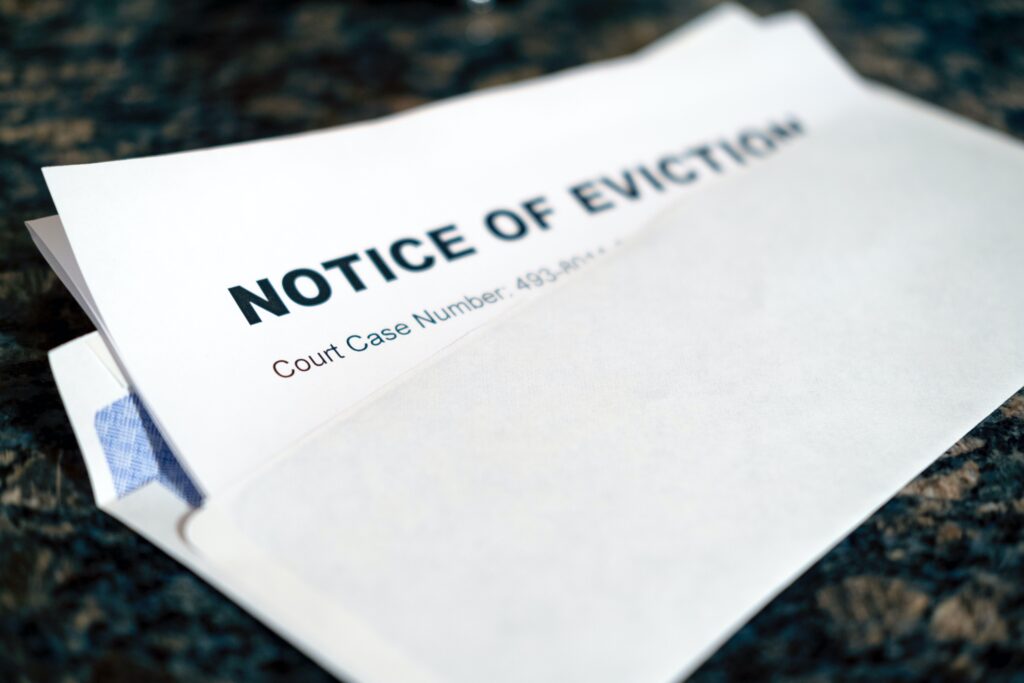Eviction is a terrible challenge to face. Not only because you lose your home, but because an eviction affects your credit for years to come. After eviction, it becomes much tougher to rent a home. Landlords check for evictions when they screen tenants. So how long does an eviction stay on your record? And is there any way to keep an eviction from having a lasting effect on your credit?

What Is An Eviction
Eviction means that you are kicked out of your rental home. Eviction happens if you have not paid your rent , or if you broke rules your landlord set. Landlords start the process by serving a tenant with notice to vacate. Renters must leave after an eviction notice, or the landlord can take them to court. Eviction is one of the worst marks for your rental record, and also for your credit history.
How Long Do Evictions Stay on Your Record?
In most states, an eviction can stay on your record for 7 years. The clock starts on the date of the eviction ruling in court. An eviction on your record can make it very hard to find another place to rent for seven years.
Where Do Evictions Show Up?
There are 2 places evictions show up:
– Court records – Court records of the eviction case are public
– Tenant screening reports – Private databases landlords use to screen tenants draw information from public court records.
An eviction may not appear on your credit report exactly, however any unpaid debt can show up on your credit report. Unpaid rent may show up on your credit report if your landlord sells the debt to a collection agency after you have been evicted.
Are Evictions Public Record?
Yes, evictions are public record in most states. That means landlords can easily find eviction records by checking public databases. Landlords almost always check for past evictions before renting to tenants.
Your Rights If You Are Rejected
If you are rejected for a rental property because of negative marks on your credit, the Fair Credit Reporting Act requires the landlord or leasing agent to tell you what negative items were on your report. This is called an Adverse Action Notice. This tells an applicant they were denied based on information found on their credit report, and gives contact information for the credit reporting agency used.
Providing an applicant with an Adverse Action Notices is also a requirement of the Federal Fair Credit Reporting Act.
How To Get An Eviction Off Your Record
Typically it is not possible to make an eviction totally disappear from your history before the end of a 7-year time period. But there are possible exceptions.
If you were wrongfully evicted, you can sue the landlord. For example, if the landlord didn’t follow the correct eviction procedures, or you can prove that you didn’t violate your lease terms, you may have grounds for a lawsuit. In some cases, you can petition the court to remove the eviction from your public record.
Eviction laws are different in each state. To find out about this process, head to the legal aid organization in your state, who might be able to provide resources pertaining to landlord tenant laws.
Other Strategies To Try
There are other strategies that may help put you in a better position to be able to rent after an eviction.
- Negotiate with your landlord. A landlord could be willing to set up a payment plan to pay back overdue rent that you owe. Ask that they remove the eviction from tenant screening reports when your debt is paid. If they agree to this, get it in writing.
- Dispute errors with the credit bureaus. If there are mistakes in your eviction details, dispute them with credit bureaus. You can use this free dispute template from Cambiomoney. You can also file disputes with tenant screening services. Be sure to show proof that the negative item is a mistake, so make copies of your documents to send them.
- Seek out second-chance housing. These are specific rentals that work with tenants who have poor credit profiles or have had an eviction.
- Explain your individual circumstances. Let a landlord know the steps you’ve taken to improve after an eviction. Some landlords may still accept you.
Conclusion
While evictions can negatively impact your rental prospects, taking action can help you eventually overcome the mark on your credit history. During the seven years an eviction is on your record, you can focus on improving your credit and building a case for yourself as a responsible tenant. You may be able to negotiate with a landlord to remove the eviction record, or you might be able to seek out alternative housing. If you have had an eviction in the past, be open with potential landlords to let them know, and explain why you would still be able to be a good tenant. With a lot of persistence, you can move past an eviction on your record.
